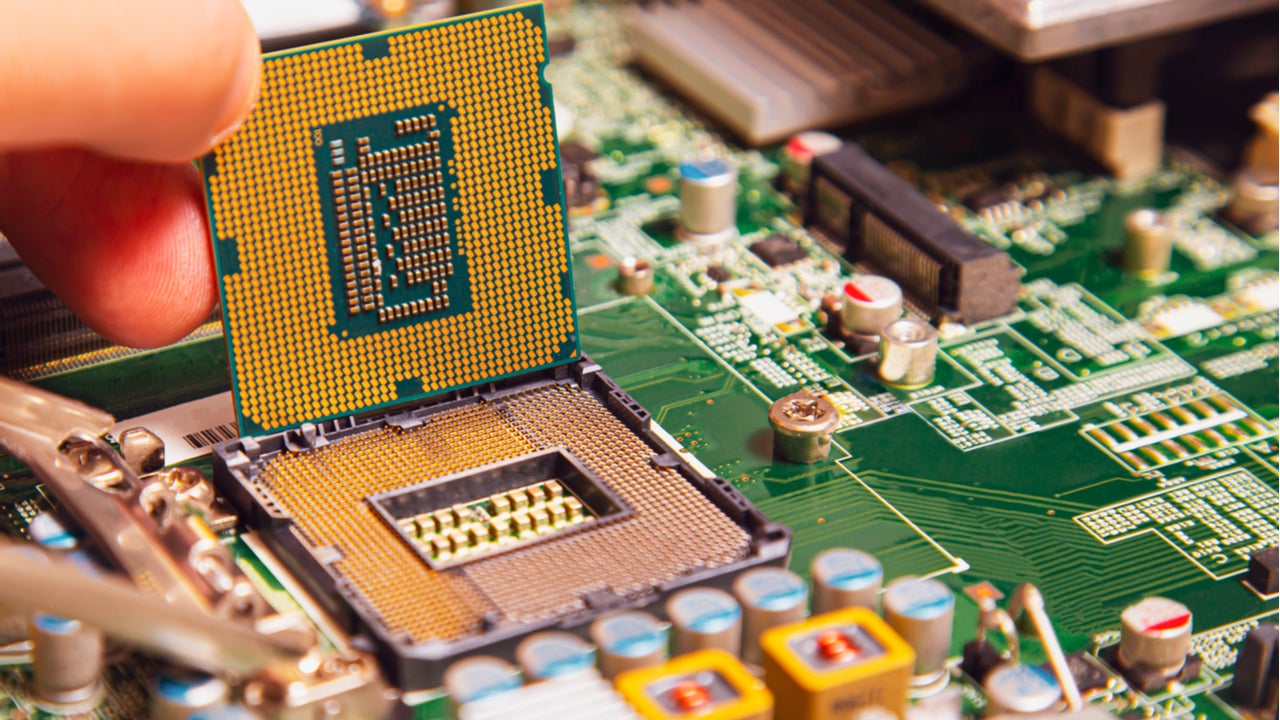
The new generation of Intel CPUs will be critical to the company’s performance in the PC chip market this decade. Alder Lake, to be released later in 2021, is claimed by Intel to have a 19% increase in performance per watt compared to previous generations. If Intel delivers on such promises, then the company could likely regain its position at the top in the CPU industry. Analytics companies such as GlobalData rank Intel among the leaders, but nobody has it as number one.
Fumbled manufacturing processes have caused Intel to lose its crown as the world’s foremost semiconductor manufacturer for PCs. The company’s chip yields have not been good enough even before the current shortage, and its rivals, such as Samsung and AMD, have been able to bring better chips to market, for a cheaper price.
With the arrival of Pat Gelsinger as CEO, a processor engineer by trade, and an innovative helmsman, Intel has been making grand proclamations about its plans to dominate the sub-5nm generation of chips. Alder Lake, which is made using a 10 nanometer (nm) process called Intel 7, will be followed by Raptor Lake in 2022, then Meteor Lake in 2023 which will use a 7nm process called Intel 4. Only by that point does the company see itself regaining top spot.
Alder Lake and Raptor Lake will set the scene for the decade. If performance is not up to scratch, then sales will falter and investors and consumers will lose confidence. This would leave the company in trouble for its planned 20A process. 20A is an allusion to the angstrom – a unit of measurement 1/10th of a nanometer. The 20A would use a 20 angstrom (2nm) process, scheduled for release in 2024. If consumers aren’t impressed by a 10nm process, why should they trust Intel with a 2nm process?
Alder Lake will no doubt sell well. Computing enthusiasts have long-standing relationships with Intel and many would like to see the company return to the top of the pile. However, Intel has been scant on detail around critical issues. Thermal problems have beleaguered the company’s chips recently and Intel is not providing information on Alder Lake’s thermal performance. Should Alder Lake also experience heating issues, then this will impact sales and further damage confidence in the brand.
Intel’s breadth of IP, buy-side power, and brand equity amongst gaming enthusiasts – who are, after all, the main market for these products at launch – could see the company regain top spot if all goes well. But Intel is already behind. Apple’s ARM-based M1 system on a chip, which shipped late 2020, is already using a 5nm process manufactured by TSMC and received rave reviews. 5nm chips from AMD are also rumored to be released in 2022 after its 7nm chips were also well received.
How well do you really know your competitors?
Access the most comprehensive Company Profiles on the market, powered by GlobalData. Save hours of research. Gain competitive edge.

Thank you!
Your download email will arrive shortly
Not ready to buy yet? Download a free sample
We are confident about the unique quality of our Company Profiles. However, we want you to make the most beneficial decision for your business, so we offer a free sample that you can download by submitting the below form
By GlobalDataIt is, however, refreshing to see Intel putting forth a confident roadmap. The chip shortage has driven down supply and chip manufacturers have put prices up as a result, which has allowed for greater research and development spending in the sector. This will benefit the performance of products to be introduced over the coming few years. Intel already had billions of free cash flow, so they have no excuses should its new generation perform poorly.
In a recent report by GlobalData, Intel was ranked 3rd out of 56 semiconductor companies for its performance in themes such as AI, autonomous vehicles, and digital media. If the company gets to grips with manufacturing, and Alder Lake and its proceeding chips perform, then there is no reason why Intel should not go back to the top.






Related Company Profiles
Intel Corp
Apple Inc